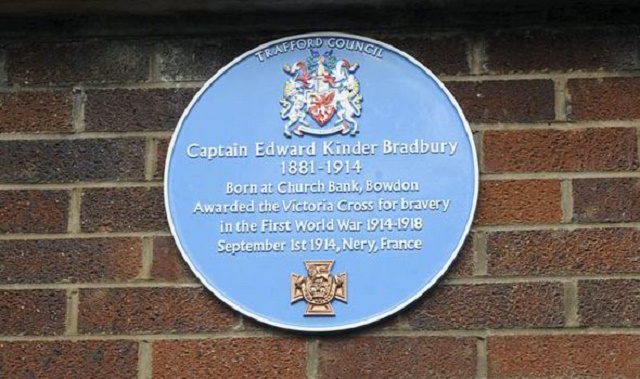Since the centenary began, it has become increasingly common that the story of a WWI soldier who fought bravely yet received little acclaim will occasionally come to light. It is not that the stories of such men have never been told before, but simply that they have not received formal honors for their actions during the war. One such WWI soldier who died early on in the conflict has now been honored, one hundred years after meeting his fate on the battlefield.
The man in question is Captain Edward Bradbury, who died on the first of September in 1914. A veteran of the Boer War, Bradbury was horrifically injured when the German forces ambushed his troops with twelve artillery guns. One of the shells landed close enough to the brave WWI soldier that he lost both of his legs. Although his wounds were fatal, he had the field medic give him morphine so that he would be numb enough to continue fighting. He took control of one of his own army’s artillery guns, and began firing back. By the time he had no more shells to fire, he had eradicated a third of the ambushing troop’s artillery weapons. It was only when he could do no more that he finally succumbed to death.
Bradbury was posthumously granted a Victoria Cross, one of the highest honors imaginable. His more recent honor, however, comes in the form of a plaque in Bowdon, his hometown in Greater Manchester. This simple plaque shows where the WWI soldier was born, the date and location of his death, and the fact that he was awarded the Victoria Cross for bravery. This allows those in Bowdon to remember his actions in a more personal manner than simply be reading about them through online military websites.
Not only was Bradbury given a plaque, but an entire ceremony was dedicated to its unveiling. Bowdon was host to a military parade, which included members of the Royal Horse Artillery (Bradbury’s former regiment). Surviving relatives of the WWI soldier were ecstatic to learn of Bradbury’s exploits, of which they were previously unaware due to the fact that none of Bradbury’s immediate family is alive. Those who survive today are mostly distant cousins, the Express reports.
These cousins were born to a father who was also a WWI soldier, but who did not speak often about his experience with the war. As a result, Bradbury’s story had largely been forgotten in his hometown. The recent parade has helped to ensure that all surviving townspeople will remember his deeds as a WWI soldier, and the honorable death that made him a recipient of the prestigious Victoria Cross.
